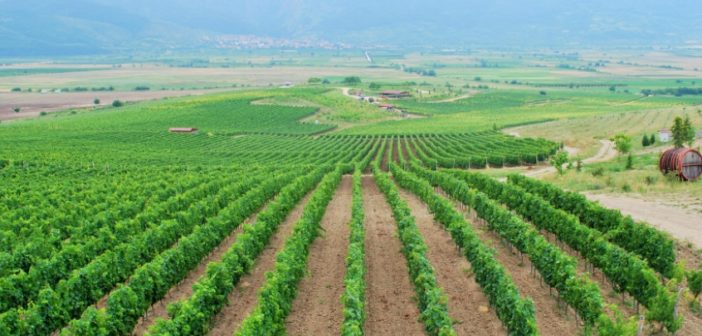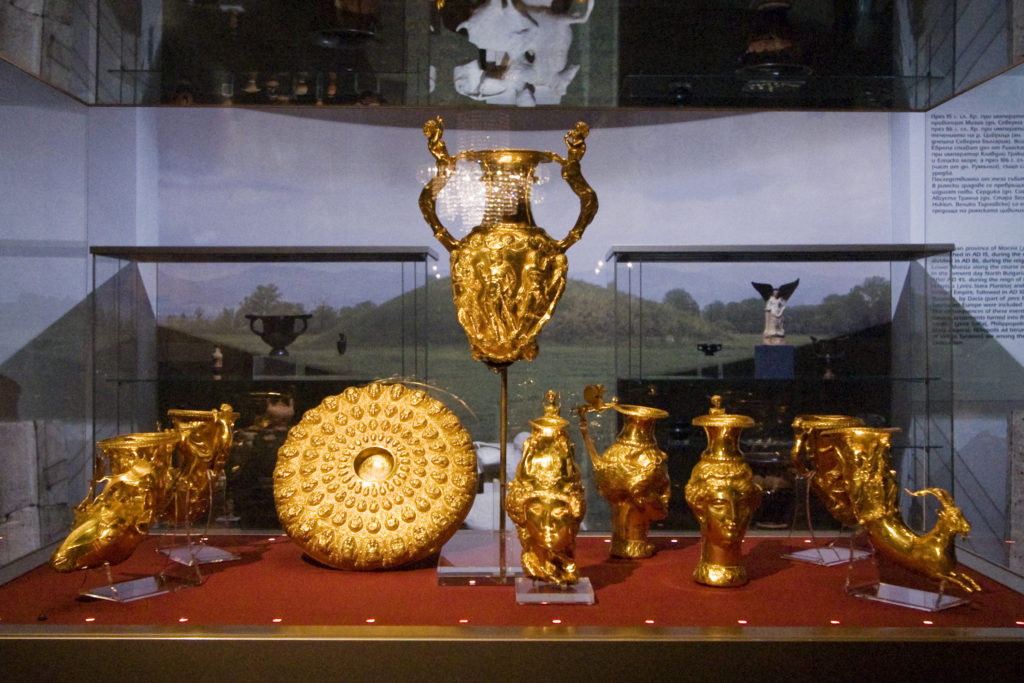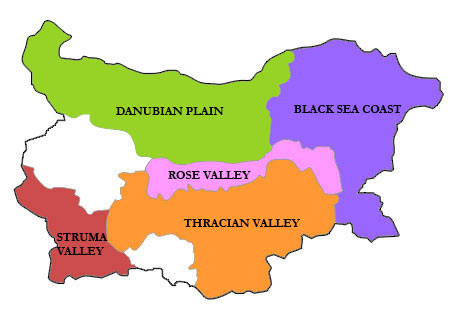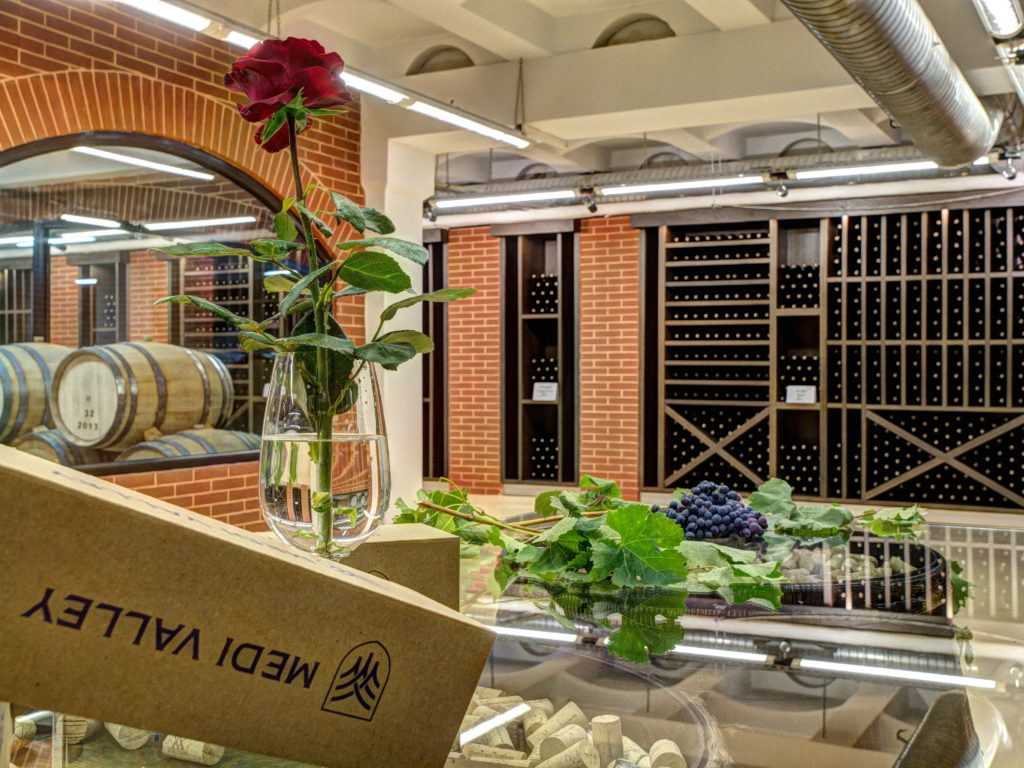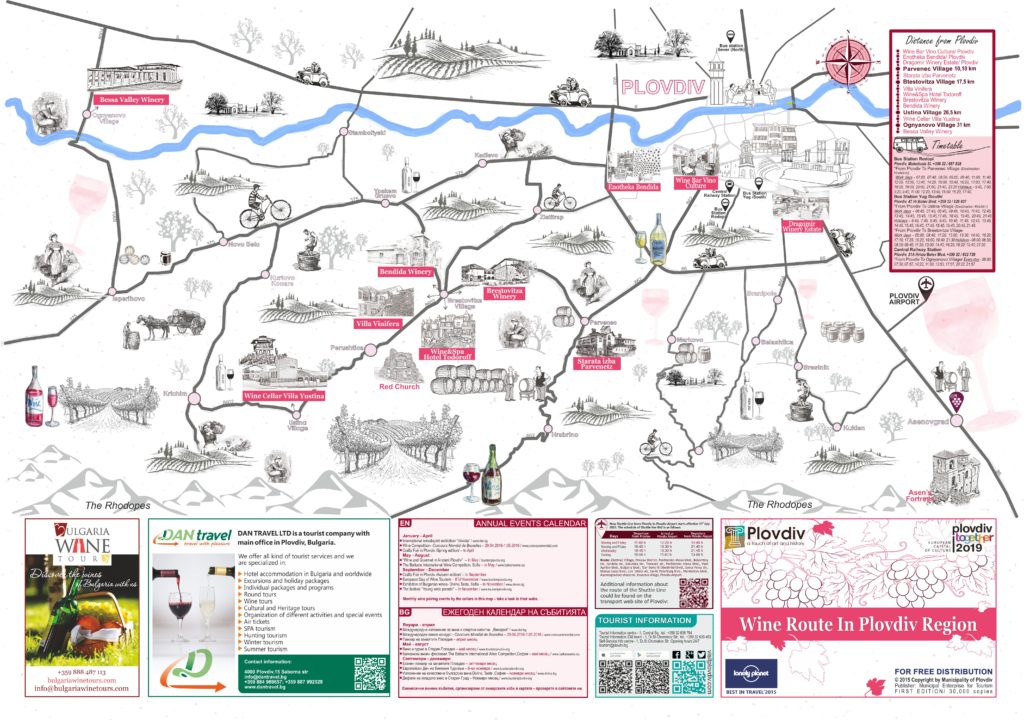Nội dung
The history of Bulgarian wine
Bulgaria is one of the oldest wine producing areas in the world with evidence of wine production dating back to 4 000 BC. The Bulgarian lands were then inhabited by the Thracians – numerous tribes who worshipped wine as a divine drink. Thracian wine was even mentionedin Homer’s The Illiadas the finest wine there was.
It is believed that the world’s first documented wine appellation was designated in nowadays Bulgaria when in II century AD emperor Antonius Pius proclaimed the vineyards in Lower Mizia (now northern Bulgaria) as protected.
The winemaking tradition in Bulgaria continued through the years. Wine production was preserved unofficially even during the 500-year long period of Ottoman occupation that ended in late 19th century. After gaining independence from the Ottoman Empire the wine industry in Bulgaria flourished, reaching its peak in the 1970s when Bulgaria was one of the world’s largest exporters of wine. Production declined after the fall of communism in the 1990s. Following Bulgaria’s accession to the EU in 2007, a number of small and medium-sized boutique wineries have been popping up on the Bulgarian wine map. The quality of their work is acknowledged by the fact that Bulgarian wines are the most awarded wines in Central and Eastern Europe. The same boutique wineries are also the drivers of wine tourism development in Bulgaria.
Bulgarian Wine Regions
There are over 300 wine producers spread out over Bulgaria’s five wine regions. The Thracian Valley region has the highest concentration of wineries.
Local Grape Varieties
There are 44 local grape varieties in Bulgaria – 22 red and 22 white varieties. Not all of them are actively used in wine production but interesting grape varieties utilized for winemaking are:
Mavrud: an ancient red grape variety, mainly grown in the Plovdiv area. The wines are dark, strong and develop nicely in contact with oak.
Rubin: a hybrid between the grape varieties nebbiolo and syrah. Rubin wines have a deep ruby colour and typical aroma of berries and are sometimes blended with Mavrud for a 100% Bulgarian blend.
Shiroka Melnishka Loza (+ Melnik 55):ared grape variety endemic to the Melnik area. There aredifferent hybrid varieties created from this grape variety, such as Melnik 55. An interesting fact is that Winston Churchill usually purchased 500 liters of Melnik wine each year
Dimyat: awhite grape variety cultivated mainly along the Black Sea coast, used for the production of dry white wines and cognac distillate.
Tamianka: an old white grape, which is rather difficult to work with and thus, rare to find.Tamianka wines are fresh with aromas of spring flowers and citrus fruits.
Cherven Misket [Red Misket]:used for high quality white wines. There are different geographical variations of the grape in Bulgaria. The various Misket wines are sweet and floral.
Discover the Wines &Sights
Wine, food, vineyards, mountains, cultural heritage sites, monasteries and churches characterize each and every wine region of Bulgaria. Whichever wine route you choose to explore, you’ll end up with a memorable experience of the best that Bulgariahas to offer.
Here is a little taste of a two-day itinerary focusing on wine tastings and sightseeing:
DAY 1- SOFIA
Sofia – the eclectic capital of Bulgaria does not have any wineries in close proximity but its buzzing atmosphere is a great place to start or finish a trip in Bulgaria. Stay for a day or two to explore Sofia and the area. For a centrally located accommodation, try Crystal Palace Boutique Hotel. For a sneak peek into the Bulgarian world of wine, spend your evening at Grape Central – a modern wine bar with many local wines on the menu. For a day trip outside of Sofia, we recommend visiting the Rila Monastery, a UNESCO World Heritage site, located 120 km from Sofia in the Rila Mountains. On the way back to Sofia, stop by the Medi Valley winery for a tasting. A bus runs between Sofia and Rila Monastery every day but we recommend booking a private driver or renting a car.
Day 2- PLOVDIV
The second largest city in Bulgaria, Plovdiv, is the best starting point for a wine tour. Plovdiv is located in the heart of the Thracian Valley wine region and is surrounded by wineries. Take a bus from Sofia to Plovdiv (busses run every hour until 20:00) or rent a car for the 1.5-2 hour trip to Plovdiv. If you are looking for a spacious and rather luxurious room with a nice view, stay at Landmark Creek Hotel. Other options are the small hotels and guesthouses of Plovdiv’s charming Old Town. Try Seven Hills Hotel or Old Plovdiv Guesthouse.Plovdiv is the oldest continuously inhabited city in Europe and it has plenty of cultural sites to offer. A great way to visit the most famous sites is to take the Free Walking Tour of Plovdiv.
There are more than 20 boutique wineries in just an 80-kilometer radius from Plovdiv, so choosing which ones to visit is a tough task. You will have a different experience at each winery, so you can hardly make a mistake in your choice.
However, be sure to visit Starata Izba Wine Cellar, a wine cellar just 12 kilometers south of Plovdiv, first established in 1882. You will learn about the rich history of the place and try wines straight from the tanks and barrels. Some of the wines are quite experimental and you will not be able to find them at other wineries.
A must-visit winery around Plovdiv is Villa Yustina. The winery is 26 kilometers south of Plovdiv and you will inevitably fall in love with their vineyard-park, hospitality and, of course, their wines. Make sure to try their “Bulgarian blend” of the local grape varieties Mavrud and Rubin, aged in Bulgarian oak barrels. If you are staying in Plovdiv for longer, you can also visit the nearby Bessa Valley – specializing in red wines, Neragora – working entirely with organic grapes, Todoroff Wine & SPA – a hotel, restaurant, winery & SPA all-in-one and StaroselWine & SPA Hotel Complex–sip on wines in the beautiful underground tasting room and enjoy a superb meal in the onsite restaurant.
Planning Your Trip
Where to taste
Wineries
Tasting wine in the place it was made is a memorable experience. There are many wineries to choose from in Bulgaria. For a wine tour, pick one or two wine regions that you would like to explore. You can easily manage two wineries in one day. Maybe even three. Call the winery in advance to confirm their availability to meet you. Most wineries can conduct a tasting and tour in English led by an oenologist, wine tour guide or owner. Tastings are typically accompanied by bread, local appetizers and water. Tasting pours are usually quite generous. Don’t be surprised if you are not offered a spittoon as it is not typical to spit out your wine in Bulgaria.
Wine Bars
There is something to be said about the allure of an elegant wine bar or enoteca. Wine bars, enotecas and urban tasting rooms are great places to try a varied selection of wines, swap recommendations with a sommelier or unwind with a group of close friends over a few bottles of wine. They are ideal places to sample wines from different regions, to learn from educational tastings, to attend themed events, to indulge in wine and food paired dinners and to meet likeminded people. We have several favorite places to drink wine:
- Vino Culture
A well-known wine bar and shop in Plovdiv with a focus on Bulgarian wine. Its central location, relaxed atmosphere and friendly staff makes Vino Culture the ideal place to enjoy a glass or two of wine.
5 OtetsPaisy Str., Plovdiv
+359 89 200 1926
- Grape Central
A modern wine bar and restaurant with many interesting Bulgarian wines, delicious food and a great atmosphere. Wine tastings and Meet-the-Winemaker Dinners are regularly held at Grape Central. A great place to visit and sample the best wines that the Balkans has offer. Great wine selection.
45 Samuil Str., Sofia
+359 88 982 0444
Booking a winery visit
Call the winery in advance to confirm their availability to meet you. Most wineries can conduct a tasting and tour in English, led by an oenologist, wine tour guide or owner. Tastings are typically accompanied by bread, local appetizers and water. Poursat tastings are usually quite generous.
Where and what to eat
Bulgarian cuisine is diverse, hearty, fresh and traditional. The cuisine is influenced by Turkish and Greek cuisine but also has many Slavic and Balkan elements and, of course, traditional Bulgarian recipes that have been passed down from generation to generation. It is highly recommended to find a local ‘mehana’ and sample some of the most popular traditional dishes such as shopska salad, hotchpoth, kavarma, kapama, kyufte and kebapche. Apart from the local restaurants, there are several wine restaurants with adventurous wine lists, great ambience and delicious food. Here are our favorite places to eat:
- Megdana
A traditional Bulgarian restaurant with an authentic atmosphere, local food and live music. There is a folklore programme on every night that includes a dance ensemble and traditional singing. Get ready to join the dancing after a few glasses of rakia (Bulgarian brandy)!
11 Odrin Str., Plovdiv
+359 88 596 8270
- Pod Lipite
One of the oldest restaurants in Sofia offering traditional Bulgarian dishes prepared with local products. The food is delicious. Coupled with a rustic and authentic atmosphere, you will feel transported to a different time at Pod Lipite, which translates to ‘Under the Linden Tree’.
1 Elin Pelin Str., Sofia
+359 2 866 5053
When to visit
The off-season months of early spring or late fall are the best times to visit. The weather is warm but not too hot and the traffic of visitors has slowed down.
Getting there
Sofia Airport is conveniently located not too far from thriving wine regions. There are regular international flights with direct routes to over 50 destinations.
Where to stay
Bulgaria has a varied selection of places to stay in and around wine country – from affordable, charming guesthouses in the rural areas to luxurious, spacious hotels in the large towns. It is highly recommended to try a SPA hotel or a hotel located at a winery. Our favorites are:
- Crystal Palace Sofia****
A boutique style hotel located close to the main pedestrian street of Sofia.
Shipka Street 14, 1504 Sofia
- Midalidare Hotel & SPA
A modern hotel located between the two wine cellars of Midalidare Estate with an extensive SPA centre.
6239 Mogilovo Village, Chirpan Municipality
- Landmark Creek Hotel Plovdiv****
A new 4 star hotel in Plovdiv located by the rowing channel park and surrounded by greenery.
1 St. Valentin Street, Rowing Canal West, 4000 Plovdiv
Good to know
The currency in Bulgaria is the Bulgarian lev (BGN). Most foreigners can enter Bulgaria visa-free for up to 90 days. The official language is Bulgarian (a Slavonic language) and the official alphabet is Cyrillic. Languages such as English and Russian are widely spoken. Bulgarians nod for “no” and shake their heads for “yes”. Beware! This can lead to some comical confusion!
How to get around
Traveling by bus is more comfortable and faster than traveling by train. Taxis in Bulgaria are affordable and reliable. For excursions into rural areas and for wine tours, it is recommended to rent a car or hire a private driver/guide.
For oenophiles who love to travel, Bulgaria really is a must-see and completely off-the-beaten-track destination.
For more information on wine and food travel in Bulgaria, get in touch with Zina Sorensen – your local expert from Bulgaria Wine Tours – who is always happy to answer any questions.
By Zina Sorensen
Bulgaria – a timeless country located at the crossroad between Europe and Asia, nestled between Greece, Turkey, Macedonia, Romania and Serbia. A magical place where century-old traditions are a core element of life, ancient history and cultural heritage are the pride of the nation, the mountainous landscapes are beautiful and rugged, and where food and wine are wholesome, flavourful and distinctive. Veer off-the-beaten-path into the undiscovered wine country of Bulgaria.
